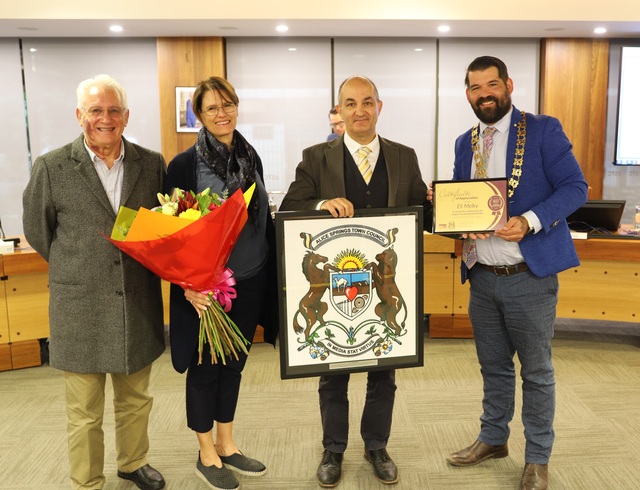By Andrea Ferris*
Marketing and communications, public relations, public affairs, corporate communications —whatever the nameplate on the door, most councils have at least one person that devotes their working week to promoting their council’s good work and helping their communities understand the myriad services, activities and changes going on around them.
This new Local Government FOCUS column takes a look at what’s new, who’s who, and what works and why in the world of Local Government marketing and communications.
As a PR practitioner are you frustrated because Councillors and executive staff treat public relations as simply a ‘feel good’ add on rather than core business?
Does your council relegate your service to producing brochures and media releases? What is the value of marketing and communications and why should it be as much of a priority as planning or engineering?
Liz McLaughlin, Managing Director of Sydney based Horizon Communication Group, is adamant that marketing and communications are “absolutely fundamental” to a council’s everyday business. With more than 20 years as a public relations specialist and having worked on several major council campaigns, she believes the primary function of Local Government marketing and communications goes a few steps beyond basic information distribution to incorporate community awareness, education and engagement.
“Councils have a responsibility to communicate with their residents clearly and effectively,” she said. “They should use the tools of marketing to tell their residents about change and educate them about new and innovative ways of doing things — particularly in the environment, which is critical today.
“There’s always new information and residents are often looking for ‘how to’ stuff. We’re not trying to sell a bar of soap, we’re introducing something new and innovative, and influencing behavioural change to benefit people as individuals, whole communities and, in some cases, the broader country.”
Liz McLaughlin is a firm proponent of the effectiveness of face to face communication opportunities like ‘roadshows’, community meetings and shopping centre booths.
“It’s so important for councils to talk with their communities,” she said. “They need to understand the value of the two-way conversation and to engage communities and give them a sense of ownership in what’s going on.”
Liz explains that, while marketing in the form of newsletters and pamphlets is important, unless people feel involved in an issue the information won’t be read and people won’t stop to think what it means to them.
“Communication theory is essentially about getting people engaged and involved in the process and, where possible, in the decision making,” she said. “There is little doubt that communities, whether rural or metropolitan, are far more discerning than they were 20 years ago, which is why councils cannot afford to assume they have a ‘captive’ audience and ignore the need to communicate, inform and promote no matter how small they are.”
In a lean financial environment for Local Government many councils might struggle to justify the expense of employing marketing and communications personnel, but Liz believes it is not a question of money, but should be considered a process.
“The minimum communications requirement for a council should be to have some community representation as a sounding board,” she said. “Use them to work out what information to communicate then make sure the message is targeted to the right people in the right language and is easy to understand.
“If the message is simple and direct then postcards and brochures and letterbox drops might be suitable, but if the issue is more complex it may call for a face to face opportunity.”
The Horizon Communication Group has a number of high profile corporate clients and Liz says the same theory and tools are used for these clients and councils.
“We often hear that something has failed because there was poor communication or no communication, so I think government, as well as business, is starting to realise that communications is a fundamental element of what they do,” she said. “These days there’s certainly a lot more public affairs and marketing directors sitting at the top table with the CEO.”
Congratulations to all the marketing and communications people in Local Government. You’re an integral part of your council and your community with arguably the most diverse and interesting job in the organisation!
Welcome to your column—we’ll be back in the November issue.
*Andrea Ferris is a freelance marketing and communications practitioner specialising in local government and agribusiness through her business, Your PR Department. Contact Andrea on 0407 449 270 or visit www.yourprdept.com.au.
For more information about the Horizon Communication Group visit
www.horizoncommunication.com.au or telephone (02) 8572 5600.







